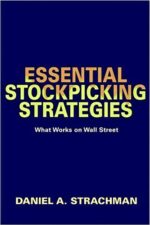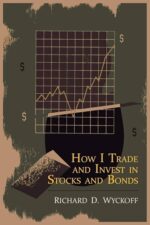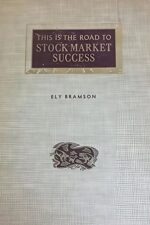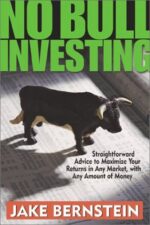The Battle For Investment Survival
$12.47
The Battle for Investment Survival by Gerald M. Loeb is one of the most enduring investment classics ever written. Loeb argues that successful investing is primarily about survival, not prediction — emphasizing risk control, capital preservation, and intelligent positioning across all market environments.
This digital book presents Loeb’s timeless principles: how to reduce exposure during dangerous markets, how to recognize psychological traps that destroy investors, and how to balance opportunity with protection. Loeb explains why losses are far more damaging than most investors realize, why diversification can fail in real bear markets, and why survival must always come before speculation.
The content focuses on practical investment behavior, not theory. It covers market cycles, emotional decision-making, defensive positioning, mistake avoidance, and disciplined strategy development. Loeb’s insights remain highly relevant today for anyone seeking a grounded, realistic approach to long-term investing.
This is essential reading for investors who want to remain resilient through volatility, protect their capital, and build an investment mindset focused on lasting success.
✅ What You’ll Learn:
- Core principles of investment survival
- How to avoid catastrophic losses
- The psychology of risk, fear, and market panic
- How to identify dangerous market environments
- Defensive investing methods used by early Wall Street professionals
- How to manage risk with discipline and structure
- Why diversification often fails during major declines
- How to balance opportunity with preservation
- How market cycles shape long-term outcomes
- How to develop realistic expectations for returns
💡 Key Benefits:
- Strengthen your investment decision-making by focusing on survival
- Reduce emotional and psychological mistakes
- Build a defensive, long-term investment framework
- Learn how to protect capital during crises
- Gain insights that remain valid across all market regimes
- Understand true risk vs. perceived opportunity
👤 Who This Book Is For:
- Investors seeking timeless principles for capital preservation
- Beginners wanting a realistic, grounded approach to investing
- Intermediate traders needing discipline and risk-awareness
- Anyone who wants to improve emotional and psychological control
- Long-term investors wanting to reduce vulnerability to major downturns
📚 Table of Contents:
- IT REQUIRES KNOWLEDGE, EXPERIENCE AND FLAIR
- SPECULATIVE ATTITUDE ESSENTIAL
- Is THERE AN IDEAL INVESTMENT?
- PITFALLS FOR THE INEXPERIENCED
- How TO INVEST FOR CAPITAL APPRECIATION
- SPECULATION VS. INVESTMENT
- SOUND ACCOUNTING FOR INVESTORS
- WHY COMMITMENTS SHOULD NOT BE HAPHAZARD
- SOME “DoN’Ts” IN SECURITY PROGRAMS
- WHAT TO LoOK FOR IN CORPORATE REPORTS
- CONCERNING FINANCIAL INFORMATION, GOOD AND BAD
- WHAT TO BUY-AND WHEN
- IMPORTANCE OF CORRECT TIMING
- STATISTICAL ANALYSIS, MARKET TRENDS, AND PUBLIC PSYCHOLOGY
- PRICE MOVEMENT AND OTHER MARKET ACTION FACTORS
- FURTHER TECHNICAL OBSERVATIONS
- MORE ON TECHNICAL POSITION CF MARKET-ITS INTERPRETATION AND SIGNIFICANCE
- ADVANTAGES OF SWITCHING STOCKS
- “FAST MOVERS” OR “SLOW MOVERS” ?
- DETECTING “GOOD” BUYING OR “GOOD” SELLING
- QUALITIES OF THE Goon INVESTOR OR INVESTMENT ADVISER
- GAINING PROFITS BY TAKING Losses
- You CAN’T FORECAST, BUT You CAN MAKE MONEY
- STRATEGY FOR PROFITS
- THE EVER-LIQUID ACCOUNT
- A REALISTIC APPRAISAL OF BONDS
- MERITS OF MINING SHARES
- DIVERSIFICATION OF INVESTMENTS
- TRAVEL AS AN EDUCATION FOR INVESTORS
- GENERAL THOUGHTS ON SPECULATION
- INVESTMENT AND SPENDING
- INVESTMENT AND TAXATION
- INVESTMENT AND INFLATION
The Battle For Investment Survival By Gerald M. Loeb
| Author(s) | |
|---|---|
| Product Type | Ebook |
| Format | |
| Skill Level | Beginner to Intermediate |
| Pages | 319 |
| Publication Year | 1955 |
| Delivery | Instant Download |
19 reviews for The Battle For Investment Survival
Only logged in customers who have purchased this product may leave a review.










Zaire Bush (verified owner) –
Probably my very favorite book. It’s so old it’s laughable, but I’ve read 100s of books published since that don’t hold a candle to Loeb. Of specific interest is his explanation of how bid/ask operates. It is the opposite of what every guru will tell you. On level 2 now I can really accurately predict where a stock is going due to this “throwaway” gem of knowledge. The rest of the book is darned good as well. Literally this book has no peer imo…
Ella Medrano (verified owner) –
Read about 50 investing books and found this book extremely boring.
Raelynn Farley (verified owner) –
Good investment advice.
Jonathan Bond (verified owner) –
Mr. Loeb has analyzed market psychology in a manner in which Freud would have been jealous. Timeless lessons of price, volume, appreciation, risk and inflation.
Nathalie Hawkins (verified owner) –
This book gives some timeless insights on the challenges associated with maintaining one’s purchasing power over time. As an investment professional, I truly enjoyed this book.
Angelina Lloyd (verified owner) –
I tried to stick with it, but I got to page 45 and had to stop. It’s either poorly written, or the author has a hard time translating what he wants to say in a cohesive manner. Much of the writing is fluffy sentences that are strung out but say nothing at all. It’s similar to how one would write if they wanted to increase the number of pages just to have more pages. I don’t necessarily think this was G. M. Loeb’s intent, but it’s how it comes across. By comparison, “The Intelligent Investor” is a much bigger book, with a lot more technical detail, and it’s an easier read than this.
Erick Russell (verified owner) –
I recently bought and downloaded “The Battle for Investment Survival”. I had first read this book at an Army post in 1969. I read it and reread it many times to get the major points by G.M Loeb.
It opened my eyes to the most common sense, intelligent advice about the stock market that has followed me through today.
to quote the book:
“It is absolutely futile to get results except to buying into anticipated large gains. It is far better to let cash set idle than to invest just to keep invested or for income. It fact it is really vital …….. one of the widest differences between the successful professional and the loss taking amateur.”
I believe this book offers the best investment advice a 72 year old has ever read.
Jordan Gallagher (verified owner) –
timeless
Graysen Anderson (verified owner) –
An old investment standard: Should be a must read for anyone interested in stack market investing.
Kehlani Luna (verified owner) –
this is a really good book.
Felicity Lin (verified owner) –
good book
Alena Gardner (verified owner) –
good
Arian Banks (verified owner) –
Thank you!
Alan Yang (verified owner) –
Poorly written, in that old-timey writing that seems like it’s a translation from another language. Some ok financial advice but you need a machete to cut through to it. Look elsewhere.
Harley Gill (verified owner) –
Overall this book is a great read for anyone who desires to invest as a hobby or wants to join the profession. It does get slightly dense at times and I found it rather limiting how charts and tables were missing but overall this author is so insightful with his investment principles and offers many lessons from the crash of 1929. Please read if you are just starting your investment journey.
Conor Adams (verified owner) –
This is one of the best books I’ve read on investing. It’s brilliant and I highly recommend it to anyone who want to learn from the best.
Victor Robles (verified owner) –
Book in great condition!
Marcos Munoz (verified owner) –
The writing style is poorly edited to the point it’s hard to follow. The book seems like a collection of random writings. There is really nothing in the book that would help with investment.
Cali Cooper (verified owner) –
Useful book